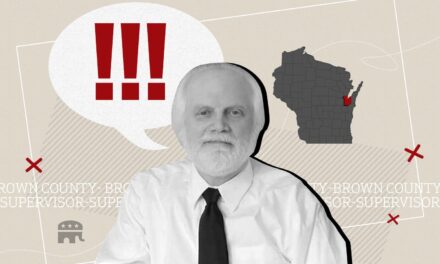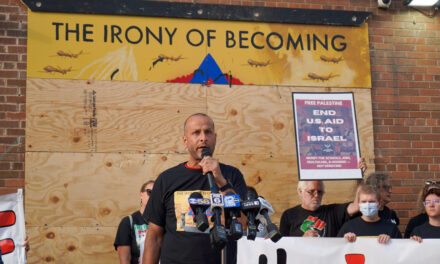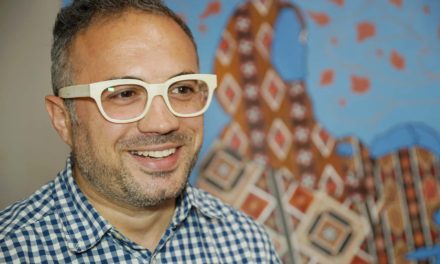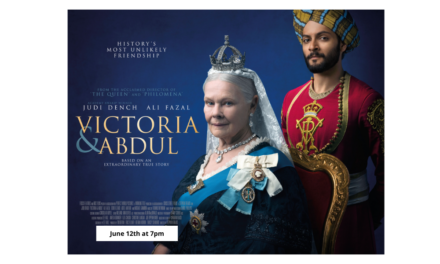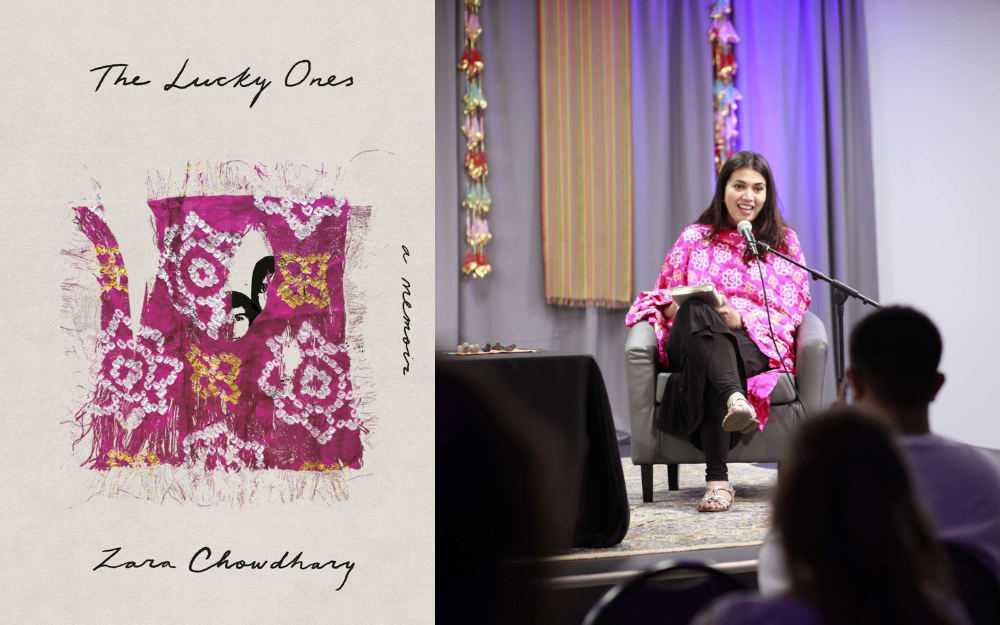
Wisconsin author Zara Chowdhary survived decades of anti-Muslim violence in her native India. Her new memoir, The Lucky Ones, intertwines her personal history with the social and political history of a fragile, multiethnic society.
“A memoir for this moment.” That’s what WORT 89.9 FM in Madison calls Wisconsin author Zara Chowdhary’s new book, The Lucky Ones.
As Washington Post reviewer Bilal Qureshi observes, “In the fragile balance of multicultural societies, there are defining moments when tribal differences ignite into flames and something darker takes flight. In this country, the Rodney King riots and the murder of George Floyd come to mind. Across the world, in India – now led for a third term by Narendra Modi’s Hindu-nationalist Bharativa Janata Party – that defining hour dates to the spring of 2002 and a spasm of violence between Hindus and Muslims in the state of Gujarat.”
That’s where Chowdhary’s memoir begins—Feb. 27, 2002—the day two train carriages transporting Hindu activists were burned in the city of Godhra, killing dozens of people. Chowdhary was 16.
“The head of the state, the chief minister, calls the burning ‘an act of terror,’ code since 9/11 for something the Muslims must have done,” Chowdhary wrote. “Three weeks later more than 2,000 Muslims have been killed in response.”
Chowdhary’s memoir, released July 16, includes her personal experience of surviving more than 20 years of anti-Muslim violence, and the fear her family felt “as they watched their Hindu neighbors become their enemies,” says Time Magazine, which includes The Lucky Ones on its list of Best Books of Summer 2024. “She also offers necessary historical and political context for the violence that has transpired between Hindus and Muslims for more than eight decades and counting.”
Meet Chowdhary at Boswell Books
Milwaukee Muslim Women’s Coalition and Boswell Books will co-host a conversation with Chowdhary about her new memoir 6:30 p.m., Thursday, Aug. 15, at Boswell Books, 2559 N. Downer Ave., Milwaukee. The event is free but registration is required. Click here to order a copy of The Lucky Ones from Boswell Books.
MMWC founder and executive director Janan Najeeb will be in conversation with Chowdhary at the event. “This is a conversation that is really important to have,” Najeeb said. “She talks about her experience of a massacre that took place against Muslims in India while we see a genocide taking place today against Palestinians. The cases are historically similar. In each, dehumanizing first took place before horrific violence.
“And we’ll need to talk about how people and communities can move forward afterwards.”
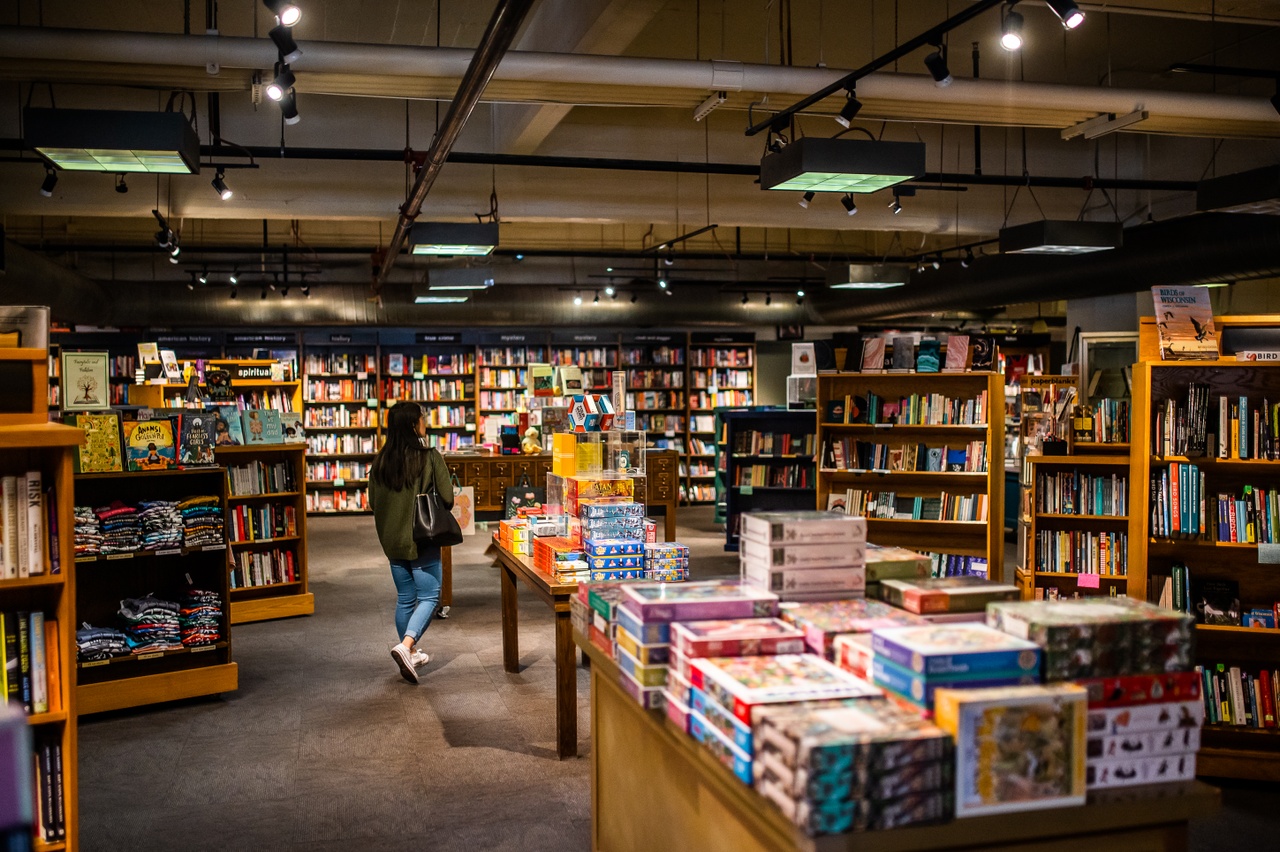
Photo by Visit Milwaukee
Boswell Books, 2559 N. Downer Ave., Milwaukee, will host a conversation with author Zara Chowdhary and Janan Najeeb, Milwaukee Muslim Women’s Coalition’s executive director, at 6:30 p.m., Aug. 15.
Wisconsin Muslim Journal interviews Chowdhary
In an interview last week, Wisconsin Muslim Journal asked Chowdhary about writing, her motivation for writing her memoir and the intertwining societal and personal stories she explores. Here are the highlights:
Have you always been a writer?
I am one of those people who wrote since she was very little. It was a way of self-soothing and making sense of the troubles around me in my immediate household and in the world outside. My mother noticed I was always writing in the back of my school books and whatnot. With the little money she had, she bought me a notebook and said, “Here’s a place for you to just write.”
I did really well in English and was always writing elaborate essays and had very strong opinions about politics and whatever was going on. Teachers would say, “You have a way with words.” So, I had these little moments of people encouraging me.
Writing is the one place where I am my most authentic self. Almost everywhere else, as a young girl and later as a woman, I have these masks I’m putting on and roles I have to play—the good daughter, the older sister, the granddaughter who will hold the family’s name in honor. In writing, I could allow for silliness, humor, darkness, pain, grief, anger. As women, we’re not allowed to show anger. We’re supposed to internalize it. On the page, I was able to rage in a way I wasn’t allowed to anywhere else.

Photo courtesy of Zara Chowdhary
Zara Chowdhary’s sister Misba performs a traditional dance.
How did you become a professional writer?
When I was 19 or 20, I ended up in the movie business, working on film sets as a production assistant and later as an assistant director. When I was doing that more visual storytelling and running around like a headless chicken, I thought film was such a powerful medium for telling stories. A mentor at the time asked, “What do you really want to do?” I told her I wanted to write. “Then you’re on the wrong side of this business,” she said. “Why don’t you study writing?”
So, I did. I earned a masters in writing for performance at the University of Leeds in England. From there, I came back and dove into a career that was more informed by the craft of storytelling. I spent a lot of my twenties working in writers’ rooms in movie studios in Mumbai, just refining the craft.
Why did you leave the film industry?
I had some very cool experiences working with some of our greatest in cinema and learning from them. But through this whole journey, I struggled internally, knowing my voice had not fully developed. I was doing these superficial stories—boy meets girl and they run off to their happy-ever-after or sports films and crime thrillers. In all this, I remember feeling very inauthentic. I knew I had lived a very powerful story myself but I wasn’t talking about the life I had lived or the truths I had seen. I had not yet even processed much of it. I had self-censored so much, putting up a gate and not letting it filter into my commercial writing.
When did you start your memoir?
It didn’t happen right away. My memory had shut down what happened in 2002 and before. My life, if I talked about it at all, seemed to start after 2002. The society I fled was behind that wall.
I decided in 2017 to get an MFA. I got into Iowa State University’s creative writing and environment MFA. I had never seen that combination, where the environment is like a character in your writing.
In 2018, when I started the MFA program, I was still imagining I would write some kind of massive, speculative piece or interlinked short stories. Then, during my first summer in the U.S., I went to a week-long residency in Martha’s Vineyard. I applied to very few residencies because I was a single mother but this one was for parent writers and included a subsidy for childcare. I was sitting by the sea in this very beautiful, remote place and I remembered how much solace and peace the ocean always brought me back in Chennai (where she lived after fleeing her home state with her mother and sister).
That was the first thread I started to tug. And suddenly, all my childhood started to unravel in front of me. I came back very resolute to write my memoir, to tell the story I’d been most afraid to tell.
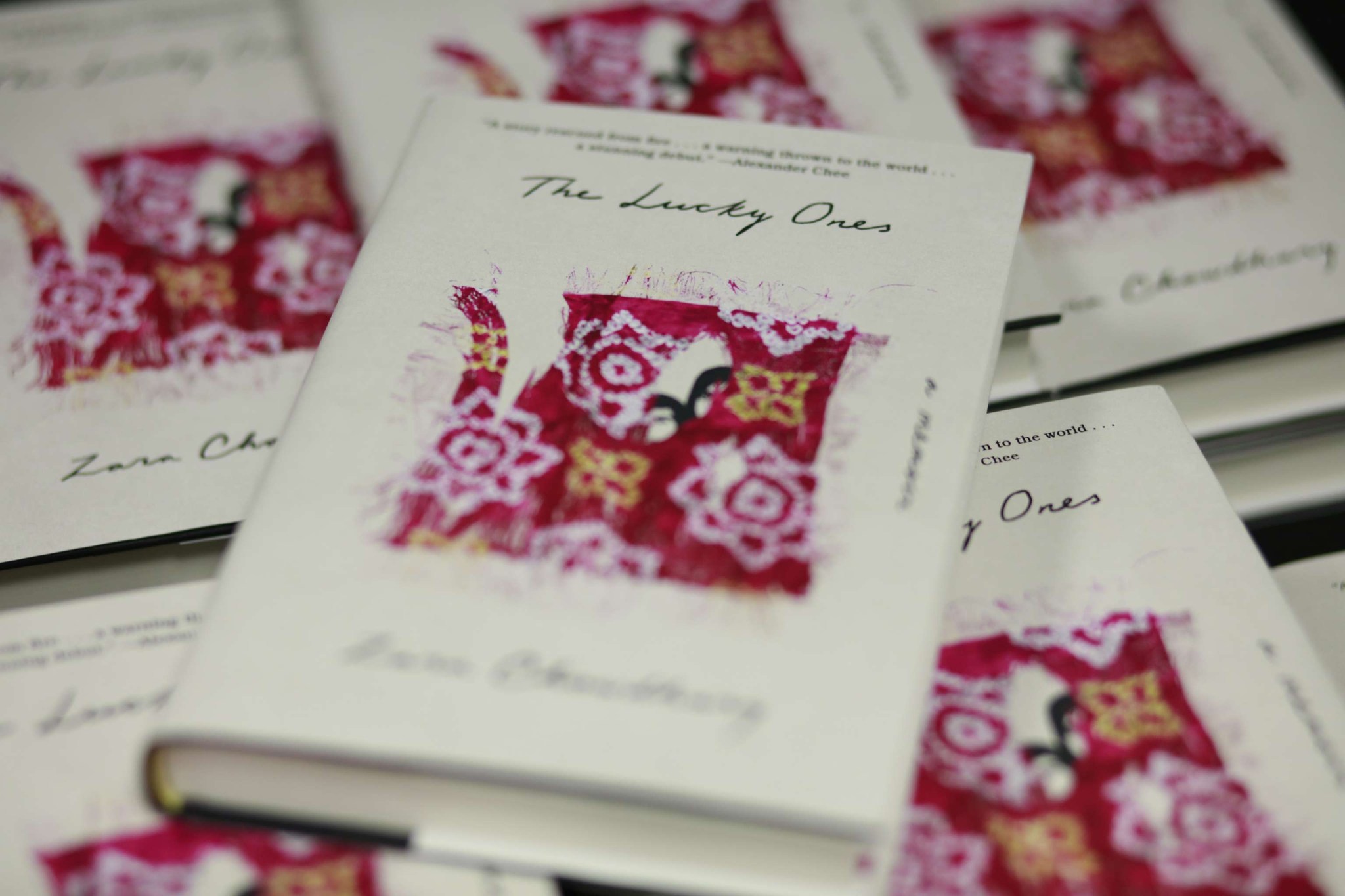
The Lucky Ones: A Memoir is an Amazon Editor’s Pick for Best Biographies & Memoirs of August.
Why were you afraid?
That’s a complicated question. The fact that in 2014 Narendra Modi and his party were elected to the head of the country is fear-inducing enough, knowing you are entering an era where just speaking your whole truth could endanger you.
There was also trauma underneath and I was very scared to touch that trauma, to go back and look at the events of 2002. I felt it alone was powerful enough to break me.
Exploring the fractured nature of my family was the other thing I was scared to get close to. That’s why I always liked fiction. It allowed me to escape into other people’s lives and problems.
Was I ready to look at memories of my repressed childhood, at agonizing instances of mass violence and state violence. Was I strong enough to look at those again? Was I ready to unlock this box?
I didn’t want to write what is essentially an emotional rant, regurgitating pain in a way that just causes more pain. I wanted to write a more thoughtful, insightful book that actually helps push the conversation forward.
There are already a lot of holocaust narratives and partition stories stuck in the category of survivor narratives. I did not want a book that was simply another survivor narrative. I wanted it to illuminate some new meaning for a reader.
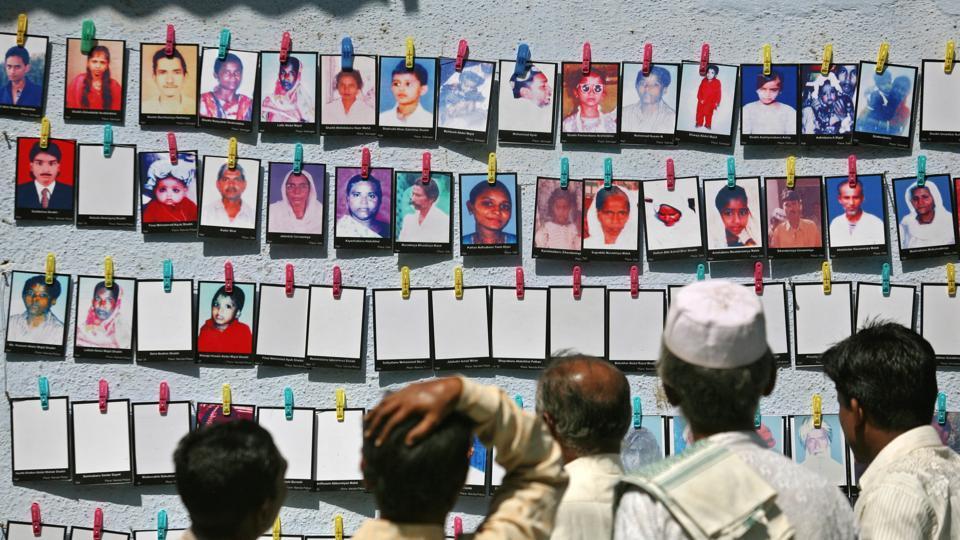
Photo: Reuters
Pictures of victims of the Gujarat riots are displayed in a photo exhibition in Ahmedabad in February 2012, the 10th anniversary of the massacres.
How did you learn to write in a more illuminating way?
When I was in grad school in Leeds, the professor had us write about a close relative in the third person, just as a reporter writing their life story. In the next round, he made us write it in first person, that act of embodying another person’s experience, the empathy of saying if I had to live this person’s life, would I make the choices they made? Would I be able to see why they made the choices they did?
When I was writing my memoir, I had to embody everyone from my own mother to my very flawed father to the man who is in the mob that wants to burn us alive. In thinking from all these different points of view, I bumped up against my own biases, my own bigotry, my own ignorance. It is only when you can humble yourself that you can start to see these other people as people.
In hindsight, it feels like this is the story I was preparing all my life to be able to tell. All of these other things I worked on helped me hone my craft so I would be ready for this. Nothing in my life has felt more infused with a sense of duty and privilege than telling this story. Perhaps I had not tried to tackle it before because deep down I knew I just didn’t have the craft and the dexterity to do it.
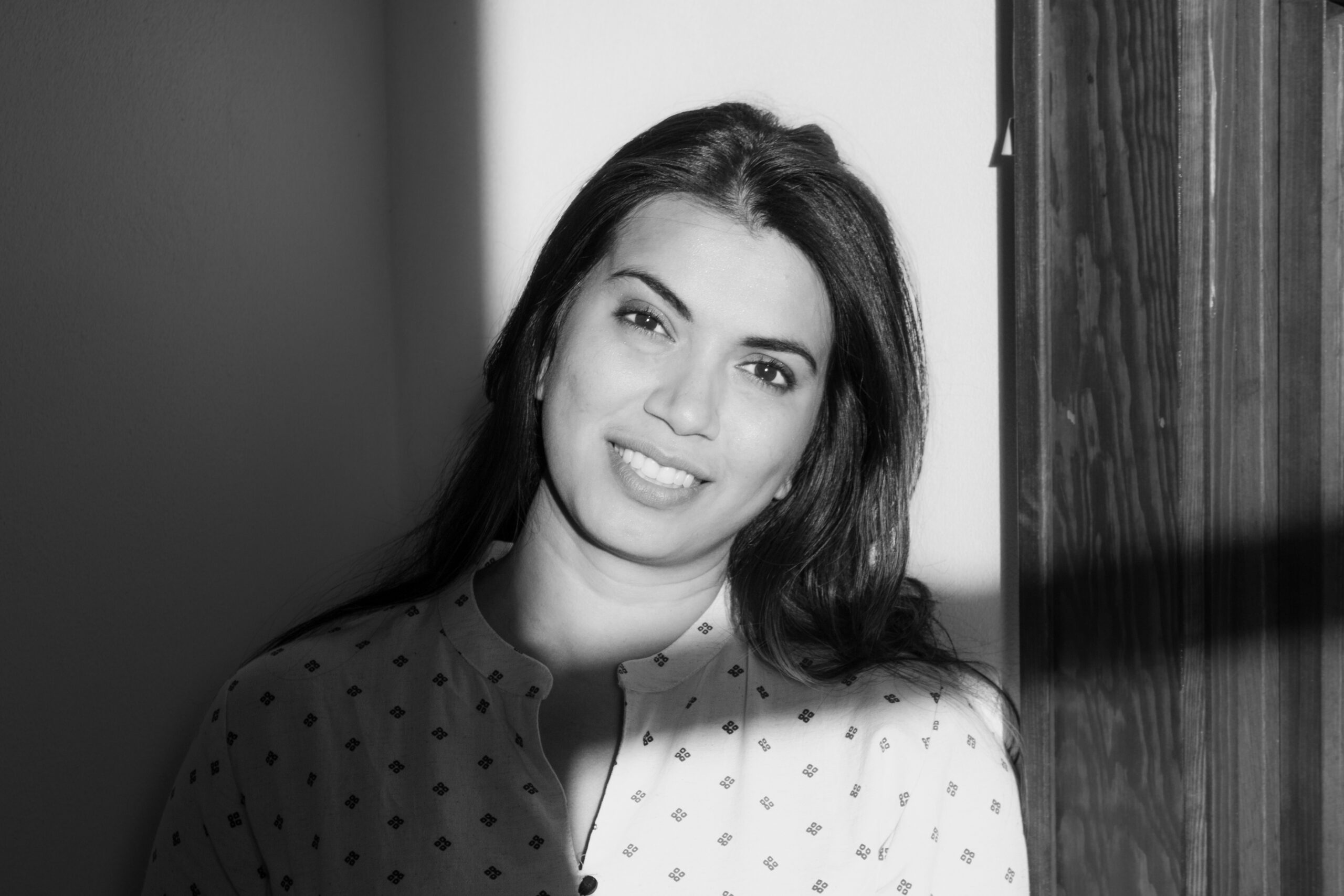
Zara Chowdhary, 37, lives and teaches in Madison.
What is this story you wanted to tell?
We’re at a moment in this world where there is so much divisive hatefulness and bigotry. There is such a rise of right-winged ethnonationalism across continents, literally on every single continent that is inhabited. So, I think this book is also a product of these times.
It’s me trying to understand how religious bigotry and ethnic tensions come to blows. I’m looking at reasons, both external and internal. What imperialist or neo-colonial projects will profit off tensions and violence between groups? I am also trying to look inside. What within communities breaks down so easily?
India never existed in some utopian state without its tensions. But something about colonialism exacerbated them. And now we have neo-colonists, people who have taken these European ideas of thinking eugenically about one group as just inherently inferior or another having a propensity to violence. Then they begin thinking in bigoted ways about each other.
I don’t think my book answers those questions, but it certainly allows me to think more about why humans need to have a villainized “other” to feel better about ourselves? Why do majoritarian states occur? Why is America moving into a direction where they think there’s a grand old past and they need to somehow go back to it? Is it because the reality and the complexity of our society now is too much for some people to take?
